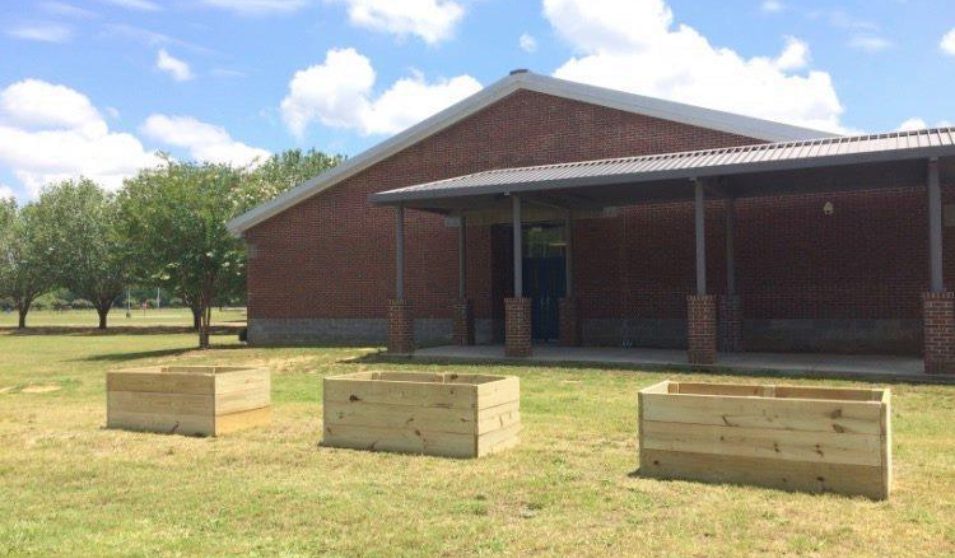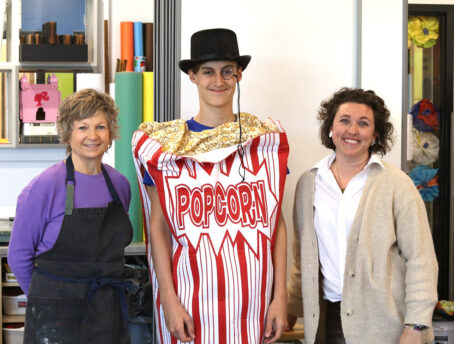There are already positive ripple effects being felt throughout communities in rural Alabama in the inaugural year of the Black Belt Teacher Corps.
The new Black Belt Teacher Corps program is a classroom-to-career placement program for students at the University of West Alabama. Being part of the Teacher Corps provides teacher education majors funding for their education in exchange for placement in rural communities where quality teacher shortages are often common. Additionally, all pre-service teachers in the Black Belt Teacher Corps receive funding from the University to implement education projects in the small communities where they teach. These grants are also part of the 2017 Grants in Place program coordinated by the Rural Schools Collaborative.
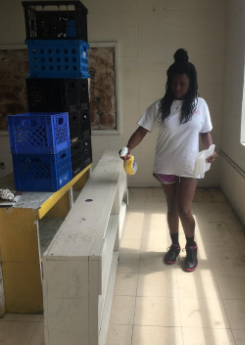
One of these projects is an innovative Makerspace created by Austin Bishop, Haley Richardson, and Elizabeth Waddell. The Makerspace project took an underutilized room at Livingston Junior High and transformed it into an open learning space where students are able to explore, imagine, create, and invent. “Not only that, but [students] will engage in activities that allow them to think and learn and learn to think,” said the project leaders.
The students chose a makerspace project in order to provide students and other teachers at the school with a flexible space where many learning styles and methods of collaboration are supported. The Maker movement has gained massive popularity throughout schools and libraries in recent years, and research demonstrates that these spaces foster creative problem solving, collaboration, STEM learning, and more. Bishop, Waddell, and Richardson wanted students at the title 1 Livingston Junior High to have the opportunity to expand their learning horizons in this new, welcoming space.
Above left, Richardson helps prepare the new Makerspace at Livingston Jr. High.
“I know I learn better by doing, by using my hands” said Bishop during a presentation of the project at the Rural Schools Collaborative’s annual meeting in July. “Now students in Livingston will be able to do this [in the Makerspace.]”
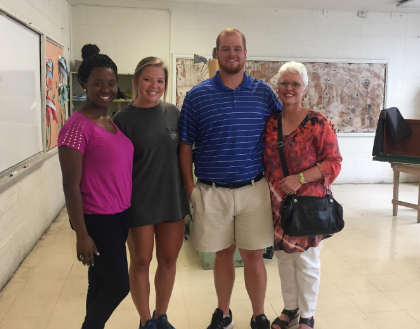 It didn’t come without plenty of sweat equity and creative thinking of their own, however. The three student teachers had to create a project proposal, budget, and get permission from school administrators before they could even begin the task of creating the Makerspace. Their proposal was met with enthusiasm from administrators and the students were able to start working on the physical space this past semester. They hope to have the makerspace ready for students in the coming school year, and plan on marketing its use within the school and community through promotional videos and social media.
It didn’t come without plenty of sweat equity and creative thinking of their own, however. The three student teachers had to create a project proposal, budget, and get permission from school administrators before they could even begin the task of creating the Makerspace. Their proposal was met with enthusiasm from administrators and the students were able to start working on the physical space this past semester. They hope to have the makerspace ready for students in the coming school year, and plan on marketing its use within the school and community through promotional videos and social media.
Above, Richardson, Waddell, and Bishop show off the Makerspace project to Dr. Jan Miller, Dean, College of Education at UWA.
Allie Marques, another BBTC member teaching in the Demopolis, AL school district, also began a service project for her school community this spring. Marques, who grew up on a farm in rural Alabama, wanted kids in Demopolis to have the fulfilling experience of growing their own food right on school grounds, so she started an ambitious multi-school garden installation she dubbed “The Sprouting Minds” project.
Marques knew that having a school garden available would help with interdisciplinary learning for students in the Demopolis district. “The gardens will incorporate meaningful, hands-on, place-based learning, and increase students academic achievement across all subjects,” said Marques. Her long-term goals for the gardens include fostering a community-to-school partnership, as the school grounds have potential to provide space for community gardens or farmers markets as the project grows.
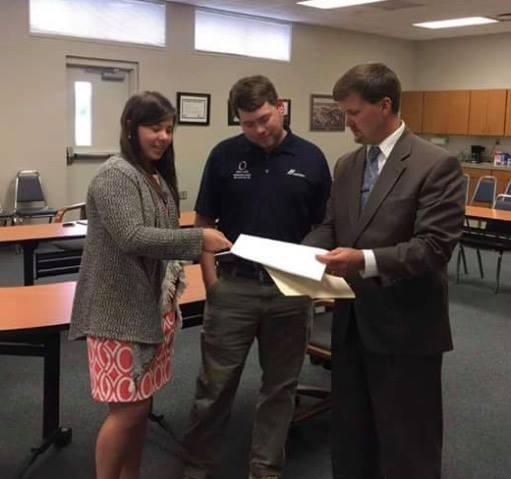 Marques charged ahead with her project this summer, and gained approval from district administrators as well as funding and installation support for the garden materials from a local construction business. Currently, handicap-accessible raised bed garden boxes have been installed at four schools within the district. Marques plans on planting the first seeds late this summer, and students will be able to dig into the soil and a new pumpkin crop by fall. Marques wants to ensure that her project is available and accessible to all teachers in the district as well: this fall, she’ll be developing garden curriculum sets for all grade levels to ensure that the gardens are used to their full advantage. You can stay up to date with Marques' project by following her "Sprouting Minds" Facebook page.
Marques charged ahead with her project this summer, and gained approval from district administrators as well as funding and installation support for the garden materials from a local construction business. Currently, handicap-accessible raised bed garden boxes have been installed at four schools within the district. Marques plans on planting the first seeds late this summer, and students will be able to dig into the soil and a new pumpkin crop by fall. Marques wants to ensure that her project is available and accessible to all teachers in the district as well: this fall, she’ll be developing garden curriculum sets for all grade levels to ensure that the gardens are used to their full advantage. You can stay up to date with Marques' project by following her "Sprouting Minds" Facebook page.
Above, Marques worked with administrators and local business representatives to get her project off the ground.
And it's not just these four educators who are crafting these engaging projects: all fifteen Corps members will be implementing community and school-based projects. These young teacher leaders, with the support of the University of West Alabama, are making some serious steps to foster engagement between school and community, and we applaud their efforts and the real difference that they are making for their towns. We can’t wait to see how these projects grow and foster continued connections and engaged learning.
For more information about place-based learning and the rural teacher corps concept, explore our website. For more information about the University of West Alabama Black Belt Teacher Corps, visit their website and follow the Black Belt Teacher Corps Facebook page.
If you’re inspired by the work of these teacher leaders, please share this story with your networks via email, Facebook, Twitter, or Instagram!

